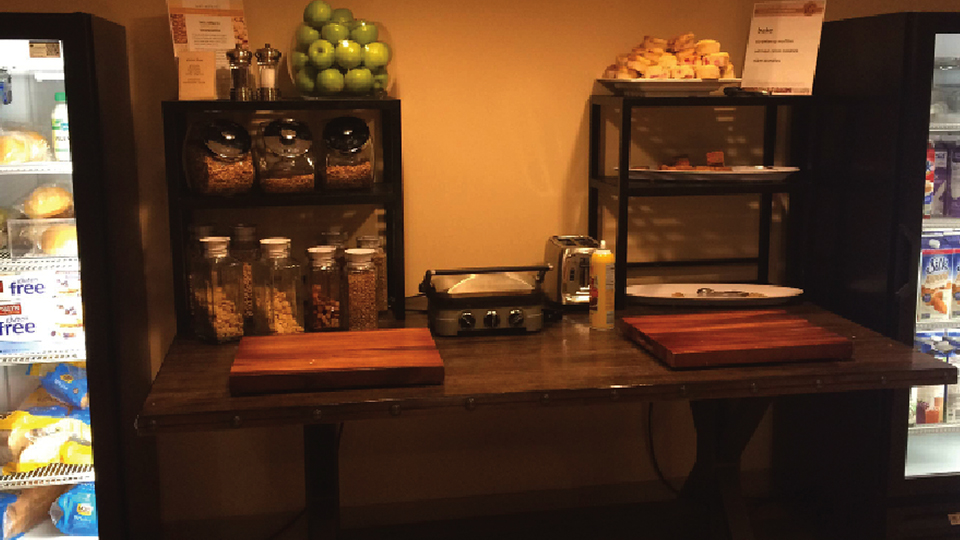Opinion
Let’s talk about the weird area in Commons
By Emily Buff ’19
April 14, 2016
Tags opinion
Everyone has seen that table in Commons by the drinks. It has a few desserts or muffins, some cereals, a toaster, two refrigerators and a panini press. There are a lot of people who question the purpose of this table, despite the signs, or who know the purpose of the table but ignore it anyways, using the toaster or the press with bread that is not gluten free. (Hint: this table is for people with with gluten allergies.)
As someone who has a gluten allergy, I have already become accustomed to the stigma by which it is accompanied. People ask me whether or not it could be the placebo effect, what my symptoms are if I eat it (vomit, if you really want to know) and then I usually get a suggestion about how to eat gluten and be fine (which typically involves antioxidants and natural supplements). This stigma has become part of our culture due to nutritionists, stars and that one random person you know who does not eat gluten and claims it makes them feel “so much better.” That is all cool, for if it helps then who am I to question it? That being said, it becomes a problem when a gluten allergy is seen as illegitimate and the clean spaces are contaminated.
My roommate cannot have any cross contamination with gluten (more so than I) and she gets terribly sick when that happens. Sadly, I cannot say I have not encountered people using the toaster or press at the gluten free table because it is open or there is not a line or it is cleaner. All of those reasons make sense if not eating gluten is a preference, but for many people, it is not a choice. And as someone who has seen someone try to cram a giant Commons gluten-filled donut in the gluten free toaster, I know that I cannot trust the station to keep me, my roommate and the rest of the students with gluten allergies safe and healthy.
An easy fix for this is to have more of the ‘normal food’ be gluten free, but this calls in to question the broader problems of the dining halls in general. Hamilton College is small and I love it for that. But that is then accompanied by fewer food options for everyone in general and far fewer options for people with allergies. Often the main entrée at Commons is not gluten free, and so options are limited to something grilled, or a sandwich made on machinery that could be contaminated.
The harder, but more serious problem, is definitely the stigma that now accompanies many food allergies. It is hard to know if people do not eat something because they are allergic or because they chose not to. However, the fact that people choose not to eat certain things should not lessen the respect people have for those with allergies to those foods.
Fixing the contamination problem definitely costs money and time and takes careful planning, and the college only has so much of that to spare. In a market that is constantly competing, it is understandable why this would not be at the top of a college’s to do list: food options for people with allergies are not glamorous and are rarely addressed on tours or in any of the glossy brochures. But it is important—everyone needs it and eating in the dining halls is a communal activity where friends are made and relationships are strengthened. So in that vein, should not a basic need such as food be met with relative ease?





